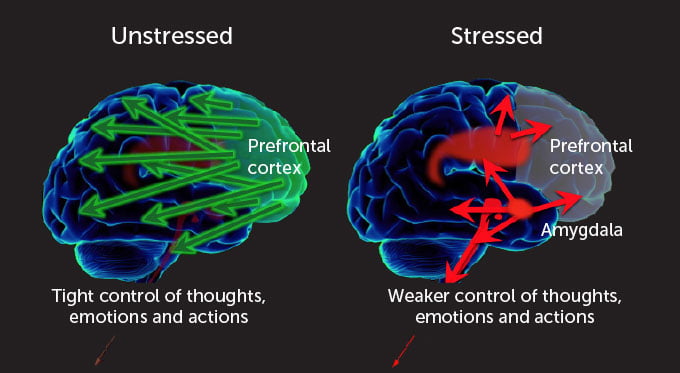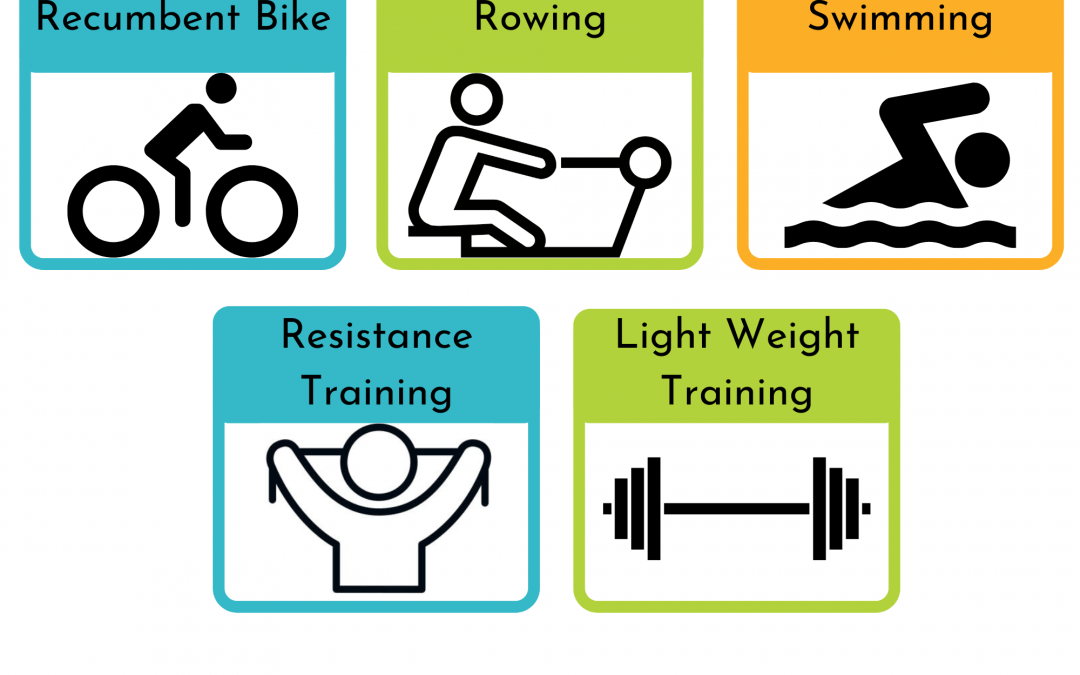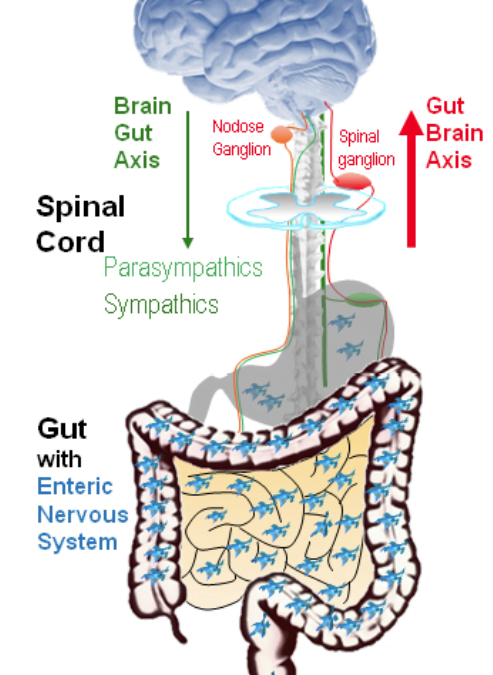There are a few theories and mechanisms that cause an increase in anxiety with Post Concussion Syndrome. One mechanism is where the increase in sympathetic nervous system activity (flight/ fight reflex) causes an inhibition of the Dorso-Lateral Prefrontal Cortex (DLPFCx) which is an area that inhibits the amygdala. By slowing down the activity in the DLPFCx we have less inhibition of the amygdala which can cause an increase in feeling stressed or anxious.

Initially our goal is to increase activity in the parasympathetic nervous system or vagus nerve which will help reactivate your DLPFCx. One method of accomplishing this is with the physiological sigh
Some studies (https://www.ncbi.nlm.nih.gov/pmc/articles/PMC3997418/pdf/pone.0095740.pdf ) have shown that there is a difference in the type of anxiety you feel based on the side of the brain with the most active amygdala.
Overactivity in the Left amygdala was associated with a higher fear of harm whereas the activity in the right amygdala was associated with anxiety around social interactions. Research has also shown that different types of meditation can have an impact on one side of the brain more than the other. It has been suggested that if you are more interoceptively aware (internal body awareness) you will respond better to a type of meditation that emphasises an external focus i.e.
This would cause more activity in the left hemisphere. If you have more social anxiety then the above is the appropriate meditation for you.
If you are more anxious about getting hurt then a type of meditation that focuses on internal body awareness such as the physiological sigh or by focusing on what you feel during your meditation through different parts of your body. i.e.
If you have questions about the above or need more help there are several different tests that can be helpful to know exactly what type of approach will work best for you. Namely;

